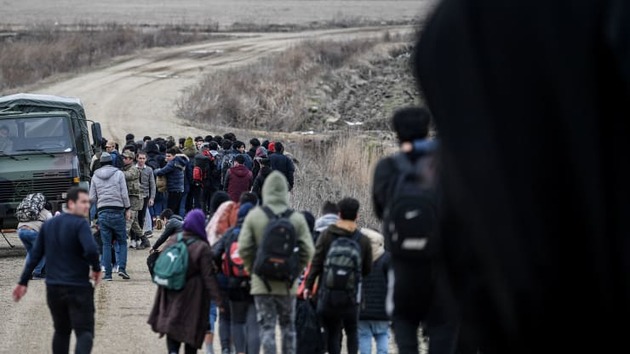The coronavirus pandemic has a significant impact on global ethnic processes. The closure of borders between countries slowed down the mass migration of the Middle Eastern and North African residents, which is characteristic of recent years. However, the process was not stopped but transformed. Moreover, new problems and challenges emerged, Ekaterina Vinnik, an analyst of Vestnik Kavkaza, said in the Natsvopros program on Vesti.FM radio station.
The expert emphasized that the pandemic hit the refugees harder than other groups, as it deprived them of the opportunity to resettle in more favourable living conditions. “One of the hardest-hit groups is undoubtedly migrants and refugees around the world. The ongoing military conflicts and difficult economic situation in many source countries of migration, especially in the Middle East and North Africa, have been exacerbated by the pandemic, and 2020, darkened by Covid-19, proved to be incredibly difficult for people seeking refuge and work in safe countries, " the expert said.
“In Europe, unprecedented measures were taken to reduce the number of arrivals, including of migrants and refugees: by mid-June, 6% of airports, 25% of land cross-border crossings and 9% of maritime borders were closed. As a result of restrictive measures, the number of irregular arrivals decreased by 85%, that is, to the levels of 2009,” Ekaterina Vinnik noted, adding that some of the refugees still managed to arrive in Europe.
“Restrictions have not become an ultimate obstacle for people fleeing war and disasters in their own countries. In 2020, about 460,000 people applied for residence in the EU (compared to 670,000 in 2019). The largest number of applications was registered in January and February, before the beginning of the pandemic, and the least from March to June 2020. Citizens of Syria and Afghanistan - 64,000 and 48,000 applicants respectively - constituted the main flow of refugees,” the analyst of Vestnik Kavkaza noted.
“Against the backdrop of the pandemic, more refugees arrived from Tunisia, as the socio-economic situation in the country has deteriorated significantly. If in previous years the majority of migrants leaving the country for Europe were single people in search of work and a better life, then in 2020 whole families fled from Tunisia. According to human rights groups, the number of Tunisian migrants in 2020 increased fivefold compared to 2019,” she said, pointing out that more than 50% of migrants announced their decision to move to Europe due to the pandemic.
There is, however, an inverse tendency for migrants to return to their home country. “For example, a record 860,000 Afghan citizens returned home from Iran. The reason for this was the economic problems provoked by the US sanctions and exacerbated by the pandemic. Nevertheless, according to the UN Refugee Agency, many of the returnees are going back or further, as soon as the situation improves,” Ekaterina Vinnik said.
“In the United Arab Emirates, there is a problem with labour migrants, who are stuck in the country due to travel restrictions. As of May 2020, about 200,000 Indians and 60,000 Pakistanis had to leave the Emirates, but they could not, finding themselves in a difficult situation with no means of subsistence, ” the analyst of Vestnik Kavkaza said.
“Thus, despite some temporary slowdown in migration amid the pandemic, global trends have not changed significantly, but the general conditions have worsened. Human smugglers activity is on the rise, internal migration has peaked (in Syria, for example), and refugee camps around the world have become major hotbeds of tension. Migrants, especially from the Middle East and North Africa, are still some of the most vulnerable people on the planet, not losing hope to find happiness in other countries, ” the expert concluded.






